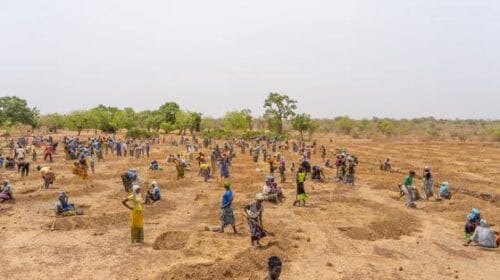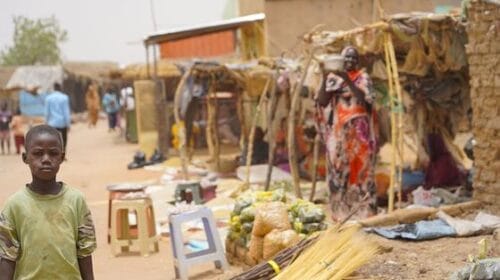Successful elections and ‘political dialogues’ push democracy forward in West Africa and the Sahel
In the past six months, presidential polls have taken place in Nigeria (23 February), Senegal (24 February) and Mauritania (22 June), Mohammad Ibn Chambas, who also heads the UN Office for West Africa and the Sahel (UNOWAS), told the Security Council.
Ahead of the “fiercely contested elections”, he said that he conveyed to all presidential candidates, regional and international partners, “the need to uphold the high electoral standards in the region”.
Beyond relatively smooth electoral processes, he continued, “the past six months also saw the opening of political dialogues between the ruling government and the opposition in Burkina Faso and Benin, while in Ghana, political stakeholders started a dialogue on vigilante groups”.
Moreover, just this month in Liberia, “the government respected the people s right to peaceful protests and agreed to begin a dialogue on strengthening the economy”, he affirmed.
However, Mr. Chambas pointed out that pre-electoral and post-electoral periods “continue to be characterized by tensions, antagonistic contests and disputes, including around non-consensual constitutional amendments”.
“Addressing such potential sources of conflict remains a major priority ahead of the upcoming cycle of high-stake presidential elections in West Africa scheduled for next year in Burkina Faso, Cote d Ivoire, Ghana, Guinea, Niger and Togo”, he explained, noting that tensions around electoral periods “derail the necessary attention to the pressing need to address questions of development and inequality”.
Challenges pervade
Several countries in the region continue to struggle with human rights challenges. Mr. Chambas expressed particular concern over what he termed “the instrumentalization of the judiciary for political objectives” as well as a “predominant sentiment of impunity for violent crimes”, which undermines the rule of law.
And what’s more, a persistently high level of inequality continues to negatively impact women, “making them prone to gender-based violence”, he observed.
The UNOWAS chief cited “violent extremism” as being responsible for the volatile security situation “in the entire Sahel”.




